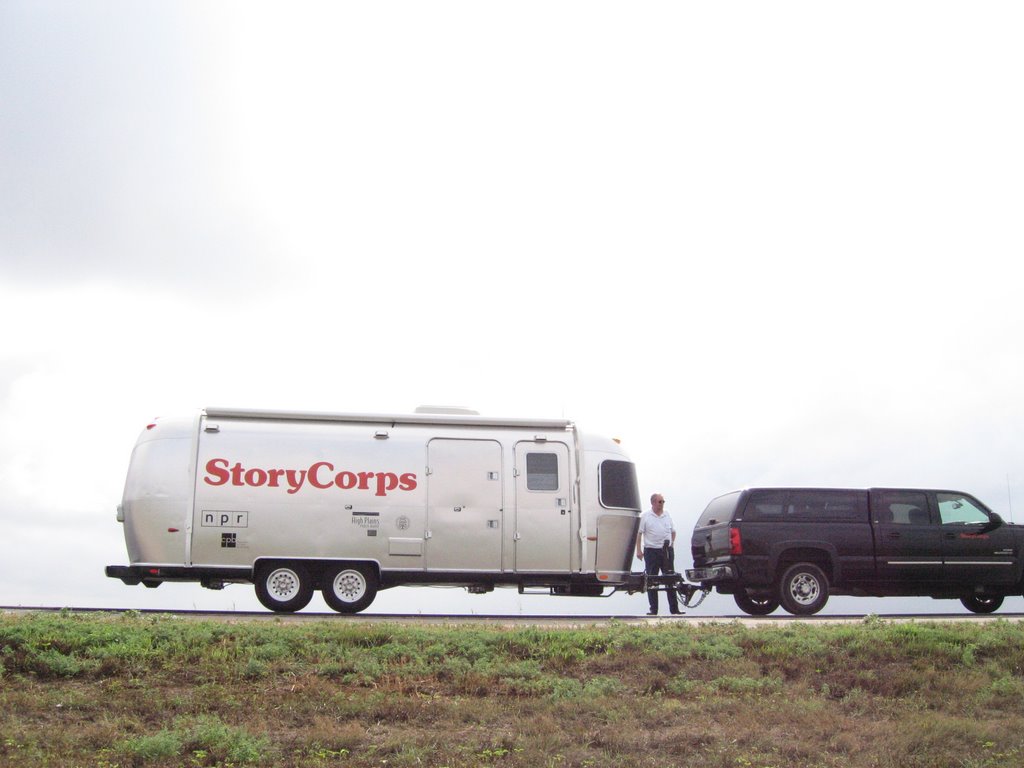Humanities scholars bring new perspectives to nonprofit media
It’s easy to poke fun at someone with an advanced humanities degree — especially an English degree — amid an economy that places a premium on STEM education.
“We’re kind of the punchline, the biggest of punchlines,” said Victoria Reynolds Farmer, who has a doctorate in English. She’s been asked, “Are you going to be a Starbucks barista your entire life?”

Farmer
That negativity can be difficult to deal with, Farmer said. Naysayers tend to see her work as limited when they don’t know the value of her skills. “We actually learn how to think critically and synthesize information, which is something that a lot of people don’t know how to do anymore.”
Public and nonprofit organizations can tap into such skills to boost engagement and reach new audiences as they work with academics like Farmer through a two-year fellowship program.
Since 2011, the Mellon/American Council of Learned Societies Public Fellows program has placed humanities scholars within the government and at nonprofits, including arts, digital media, public policy and international relations organizations. The wide range of opportunities is important for demonstrating the broad utility of a humanities degree, said John Paul Christy, director of public programs for the ACLS in New York City. ACLS named its 100th Public Fellow in May.
The Center for Investigative Reporting became the first media nonprofit to host a fellow in 2013. Since then, about eight others have also participated, including American Public Media, the Center for Public Integrity, Public Radio International and the Texas Tribune. The deadline for host organizations to apply this year is Oct. 18.
Organizations should be able to provide a fellow with responsibilities that can grow in depth and complexity, work that fits into a new professional’s developing resume and professional development opportunities, including mentorship, Christy said.
First-time participating organizations pay a placement fee of $6,500. Other financial responsibilities include covering payroll taxes and health insurance. ACLS will provide 2017 fellows with a $67,500 annual salary.
“Not to put too fine a point on it, but one of the goals here is to prove that not everybody needs a STEM degree to be valuable to the world,” Farmer said.
Opportunity in a tough job market
Newly minted humanities grads typically pursue an advanced degree for 11 years, only to face limited job prospects after completion. Carrying an average cumulative debt of $30,000, about 45 percent have no definite commitment for a job or postdoctoral study after graduation, according to 2014 data gathered by the National Science Foundation.
ACLS knew that humanities grads may lose visibility among their peers when they leave academia. Ph.D. recipients say academic work is highly valued, and those who pursue careers in the private or public sectors don’t receive as much institutional support.
“I think at this point it should be thought about as a twin success outcome to a teaching position,” said Craig Eley, who recently completed a fellowship as a digital producer with Wisconsin Public Radio. “It’s the reality of the marketplace.”
ACLS is seeing that organizations using its fellows are interested in better understanding their audiences, improving engagement and producing content that represents their audience, Christy said. For example, Farmer, midway through a fellowship with PRI, works between digital and marketing teams as a senior manager of audience development.
PRI benefits from Farmer’s liberal arts background, which has strengthened her ability to think broadly about topics before narrowing them down, said Julia Yager, PRI’s senior v.p. of marketing, sales and distribution. “It allows Victoria to consider lots of different aspects, pieces of the puzzle, and not just assume a conclusion before she has a chance to observe and think about the data,” Yager said.

McKinley
At Minnesota Public Radio, Eric Garcia McKinley, who holds a doctorate in history, has just begun researching source diversity. As senior research analyst for engagement and inclusion, he’s working on understanding how it relates to MPR’s content and audience. The work requires asking questions from different perspectives, he said.
“In history, I’ve always looked for missing voices,” McKinley said. “I’ve always wanted to tell a more complete story than has been told before.”
“It’s safe to say that we in public media, even at MPR, don’t hire a lot of Ph.D.’s, but we very much value the skillset of being able to gather data and analyze data,” said Linda Miller, McKinley’s supervisor and director of network journalism and inclusion at MPR.
McKinley will eventually try to engage with underrepresented communities, informing how MPR’s journalists approach issues of identity and perspective. His academic background has prepared him for that job, something journalists often struggle with outside the context of a story, she said.
“As a journalist, one of the challenges you have in this work is how to ask people these questions about identity, who they are, so we can understand better their perspective,” Miller said, adding that it’s difficult to do so in a way that does not cause sources to question your impartiality.
As a digital producer, Eley had responsibilities that were more hands-on. With a doctorate in American studies, he worked on WPR’s nationally syndicated show To the Best of Our Knowledge. TTBOOK says it “cracks open the world and the ideas that fuel its engine,” covering topics including politics, science, philosophy and cultural trends. Eley managed projects, experimented with the show’s podcast and helped adapt broadcast content to digital.
“Someone who has a background being a social media guru could actually have done this job pretty darn well,” Eley said. “But the fact that I had read and taught in the humanities, and I knew the names and the work and the general vibe of a lot of guests on our show, helped me connect with the material right away.”
Transitioning from academia to media comes with challenges. Some are obvious, like learning the culture, while others can be less expected. Trading an office for a cubicle and adjusting to fixed schedules was especially difficult.
“The first probably month and a half, I had to go home at night, and sit in my bedroom and turn the light off and just be quiet for half an hour because I had [interacted with] people so much during the day,” Farmer said. “I was just a little drained.”
Many of the fellows also said they had to think differently. When he started, Eley was more interested in employing shiny tricks and widgets to make radio pieces look cool. “But the inclination here at WPR is to ask a different question. ‘How does this serve the listener?’” he said. “And that was probably the most important thing for me to learn.”
Embrace new ideas and perspectives
Most fellows have continued to work with their host organizations, while about 5 percent returned to academia, according to ACLS.

Lindsay Green-Barber
During her 2013–15 fellowship with the Center for Investigative Reporting, Lindsay Green-Barber developed a media impact framework since used by dozens of organizations. She was hired full-time after her fellowship as director of strategic research.
With a background in social science, Green-Barber said she was able to use research methods not typically employed by newsrooms or foundations for measuring impact. She advises organizations that are interested in hosting fellows to find out what students learn in doctoral programs, what research skills they acquire and how they learn to think critically.
“Organizations that can really embrace and be ready for different ideas and perspectives will probably get the most out of the experience,” Green-Barber said.








